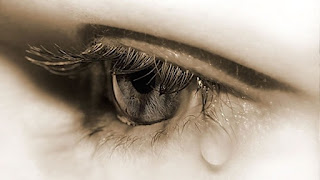Dr. Siras,
In those nights,
you must have felt loneliness like a drip.
The walls of your room
would�ve been held apart only by a faint song,
and memory must have sat by you all night
combing the hours.
In your Marathi poem, Dr. Siras, the one about the �beloved moon,�
the one in which you somehow eke dawn from the dark sky,
I read it last night on the terrace,
it held me, it held my hands,
it let grass grow under my feet.
In this house that I have lived in for three years in Delhi, Dr. Siras,
the windows open onto a Palash tree.
I was 27 when I had rented it,
and at 27, the landlord had not spent too much time on the word �bachelor�
he had only asked if I had �too many parties�,
I didn�t, and I had got the house.
But next time, Dr. Siras, when I will try and look for a place in this city,
I will be older and they will pause at "but marriage?"
and I will try to eke out respect from a right surname,
from saying �Teacher�
from telling my birth-place,
and will try and hide my feeling small under my feet.
What had you said, Dr. Siras,
when you looked for that house in Durga Wadi?
What had you said for the neighbourhood, �Teacher�, �Professor�,
�Poet�?
What gives us this respect, Dr. Siras, this contract with water?
In those nights,
weighing this word in your hands,
you must have felt weak, like the sun at dusk,
you must have closed the window to keep out the evening,
you must have looked back, and hung the song in the air
between refusal and letting go.
(thanks to Apurva M Asrani and Ishani Banerjee)
In those nights,
you must have felt loneliness like a drip.
The walls of your room
would�ve been held apart only by a faint song,
and memory must have sat by you all night
combing the hours.
In your Marathi poem, Dr. Siras, the one about the �beloved moon,�
the one in which you somehow eke dawn from the dark sky,
I read it last night on the terrace,
it held me, it held my hands,
it let grass grow under my feet.
In this house that I have lived in for three years in Delhi, Dr. Siras,
the windows open onto a Palash tree.
I was 27 when I had rented it,
and at 27, the landlord had not spent too much time on the word �bachelor�
he had only asked if I had �too many parties�,
I didn�t, and I had got the house.
But next time, Dr. Siras, when I will try and look for a place in this city,
I will be older and they will pause at "but marriage?"
and I will try to eke out respect from a right surname,
from saying �Teacher�
from telling my birth-place,
and will try and hide my feeling small under my feet.
What had you said, Dr. Siras,
when you looked for that house in Durga Wadi?
What had you said for the neighbourhood, �Teacher�, �Professor�,
�Poet�?
What gives us this respect, Dr. Siras, this contract with water?
In those nights,
weighing this word in your hands,
you must have felt weak, like the sun at dusk,
you must have closed the window to keep out the evening,
you must have looked back, and hung the song in the air
between refusal and letting go.
(thanks to Apurva M Asrani and Ishani Banerjee)







